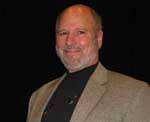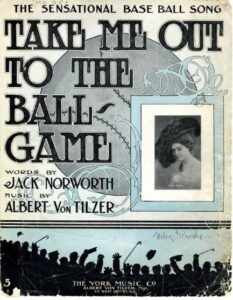By Jerry Klinger

 BOYNTON BEACH, Florida –Thursday, July 4, is America’s 248th birthday. It has been a remarkable journey for Jews and many people of differing backgrounds as America slowly makes its way to what the Preamble to the Constitution called a “More Perfect Union.”
BOYNTON BEACH, Florida –Thursday, July 4, is America’s 248th birthday. It has been a remarkable journey for Jews and many people of differing backgrounds as America slowly makes its way to what the Preamble to the Constitution called a “More Perfect Union.”
In school we were taught America is a melting pot of many into one.
One great American melting pot is sport. What sport is more American than Baseball, America’s favorite, beloved pastime?
Baseball is full of fun experiences, memories, shared commonality, summer days, the whack of the bat, hot dogs, beer, screaming the Umpire is Blind, and more.
Yet even in Baseball, stupidity did and does wrongly exist: prejudices, racial, ethnic, societal, and antisemitic.
Over its long history, Baseball evolved. It worked and is working, not always smoothly and steadily, to rid itself of the negatives and go for the common positives, Americanism.
Jews have long experienced the worst and the best that Baseball offered. Antisemitism is not tolerated on the Baseball Diamond, in the locker room or anywhere.
When attending a Baseball game, what can be more American than standing up during the seventh inning stretch and belting out, along with thousands of voices about you, Baseball’s “Unofficial” national anthem, Take Me Out to the Ball Game.
Everyone knows the words. Everyone knows the music. Everyone loves the song.
Few know that the music and the lyrics of Baseball’s “Unofficial” National Anthem were written by a Jew and a Christian.
The music of Take Me Out To The Ball Game was written by Albert Von Tilzen, a Jewish man from Indianapolis. The lyrics were written by his Christian friend, Jack Norworth.
JASHP saw an opportunity to celebrate Baseball and Americanism.
Why not donate National Park Service Wayside style markers to Ballparks and teams across the country to proudly tell a very American story about Take Me Out To the Ball Game?
The idea seemed a good one to everyone it was presented to.
The markers are customized to the Ballpark’s needs and teams’ requirements.
The text of Take Me Out To The Ball Game marker reflects the cadence of the song and its lyrics. The experience of the ball game. The marker is intended to be Americanism “fun.”
The text will be interspersed with customizable baseball images and quotes:
“Take Me Out To The Ball Game was the 1908 team effort of two friends, Jack Norworth and Albert Von Tilzer. Both men had musical backgrounds; Norworth’s Dad was the Choir Director at St. Mark’s Episcopal Church in Philadelphia. Von Tilzer was a Jewish man from Indianapolis who composed popular songs.
Norworth, riding the subway to work, saw a sign, Baseball today – Polo Grounds. He imagined a story about Katie Casey. Katie was asked out on a date. She agreed, but only if she could go to the Ball Game. She wanted to root, root, root for the home team. She wanted to eat some peanuts and Cracker Jacks. She didn’t care if she ever came back. And if they didn’t win, it would be a shame because it was one, two, three strikes you’re out at the old Ball Game.
Katie was enthusiastic and knowledgeable about Baseball. She wanted to sit in the stands. She did not want to be left behind, only to mind the home. Norworth had thrown a societal curveball way ahead of its time.
Norworth asked Von Tilzer to put the lyrics to music. They promoted the song to singers, vaudeville theaters, and Silent Movie Houses. Audiences sang along.
It quickly became a national hit.
Baseball’s song has been featured in over 1,200 movies, television shows, and commercials. It’s been recorded by more than 400 artists in every musical genre.
Take Me Out to the Ball Game was first sung at a major league game during the 1934 World Series, the St. Louis Cardinals vs. Detroit Tigers. Cardinal outfielder Pepper Martin sang it to the thrill of the crowd. The Cardinals went on to win the series.
The 7th inning stretch has been part of baseball tradition since at least 1869. Bill Veeck owned the Chicago White Sox in 1976. He observed beloved Sox sportscaster Harry Caray silently singing the song during the stretch. His mike was off. Veeck secretly rigged Carey’s booth. The next time Carey sang during the “Stretch,” his far-from-professional voice boomed across the stadium. The fans loved it.
Singing Take Me Out to the Ball game during the 7th inning stretch has become a national tradition.
JASHP has presented the offer to seven franchises and ballparks, even to Baseball’s Hall of Fame in Cooperstown. One minor league ballpark said come on down, let’s select the best site for the marker.
I did with a copy of the text, suggested images and quotes.
We walked the grounds and selected a probable best marker siting.
Back at the office, the GM asked to review the text again.
Reading it over, he asked, “Is the word Jew necessary?”
“Yes” was my response.
The GM said he will turn the project over to their publicist. They will get back to me. It may be a while. They move slowly.
Since then, every single proposal has been “Ghosted.” Phone calls, emails, contacts, are not returned.
After October 7, JASHP’s ability of completing historical marker projects has become extremely difficult.
Perhaps it is the economy, perhaps, it is the timing of the year relative to Spring Training, perhaps it is a myriad of reasons. The only reality I can confirm is that Take Me Out To The Ball Game marker project is being “Ghosted.”
JASHP will continue trying. Americanism is worth it.
*
Jerry Klinger is the president of the Jewish American Society for Historic Preservation.
Thanks to Jerry Klinger for showcasing another example of “harmonious” collaboration between Jews and Christians. The seventh inning stretch at Wrigley Field has showcased many voices, both Chicago-based and national figures. Harry Caray’s video version of “Take Me Out to the Ballgame” is often replayed with crowd accompaniment. Voices range from melodious to “can’t find a tune in a bucket,” a true cross-section of America. If any ballpark wouldn’t want to memorialize “Take Me Out to the Ballgame” because the songwriter is Jewish, it truly would be a shame.
And here’s hoping the Cubs will turn around a dismal season so we can repeatedly sing after victories “Go Cubs Go” (another wonderful contribution to Chicago baseball by Jewish songwriter Steve Goodman, who also penned the classic “The City of New Orleans” which Arlo Guthrie made famous).
Keep at it , Jerry, I am holding on to the hope that things will ‘righten’ up soon! cg